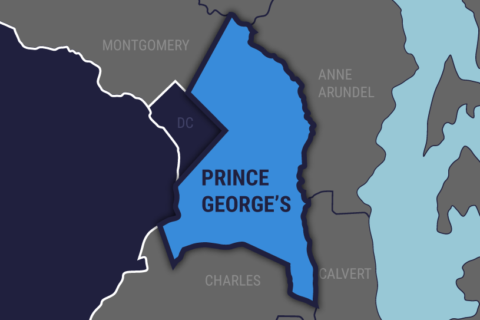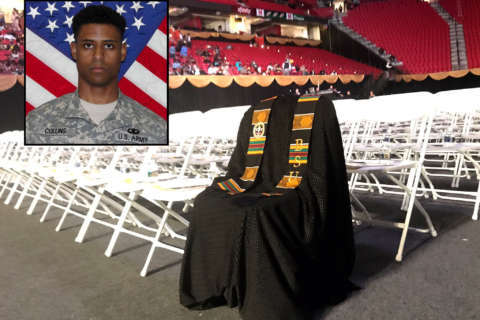WASHINGTON — The former University of Maryland student charged with first-degree-murder and a hate crime in the stabbing of a black student visiting College Park wants two separate trials.
Lawyers for Sean Urbanski, 23, have filed a motion seeking to sever his two charges connected with the May 20, 2017, death of Richard Collins III.
Urbanski, who is white, goes on trial in January 2019; the maximum penalty in Maryland for first-degree murder is life with no chance of parole, and a hate crime resulting in death can bring a sentence of 20 years.
Urbanski’s lawyers say prosecutors’ evidence must be applicable to both crimes, and argue any racist material discovered on Urbanski’s phone and in a deleted Alt-Reich: Nation Facebook group would not be admissible if this were strictly a murder case.
If evidence on Urbanski’s phone “is even relevant, any probative value is greatly outweighed by the prejudicial affect (sic) this is sure to result from admission of these inflammatory multimedia files,” defense lawyers William Brennan and John McKenna write.
Collins, a Bowie State University student who had been recently commissioned as a U.S. Army second lieutenant, was killed as he and two friends waited for an Uber at a bus stop at 3 a.m.
Sources have told WTOP that surveillance video captured the killing. In addition, they said, Urbanski’s blood alcohol content showed he was legally drunk.
While neither Prince George’s County prosecutors nor Urbanski’s attorneys will discuss the specifics of this case, separate trials would give jurors more options in determining guilt or innocence.
With video evidence of a chance encounter, as well as forensic proof that Urbanski was drunk, the defense could argue this was a case of second-degree murder or manslaughter — or he could be found not guilty.
In addition, the defense could argue Urbanski was incapable of planning and executing a murder because he was intoxicated. That could eliminate the possibility of premeditation, which is required for a first-degree-murder conviction in Maryland.
Urbanski’s attorneys, Prince George’s County and federal prosecutors, as well as the FBI, have all declined to say whether a determination has been made about whether federal hate charges will be filed. In certain instances, federal hate crimes could make a defendant eligible for capital punishment.








